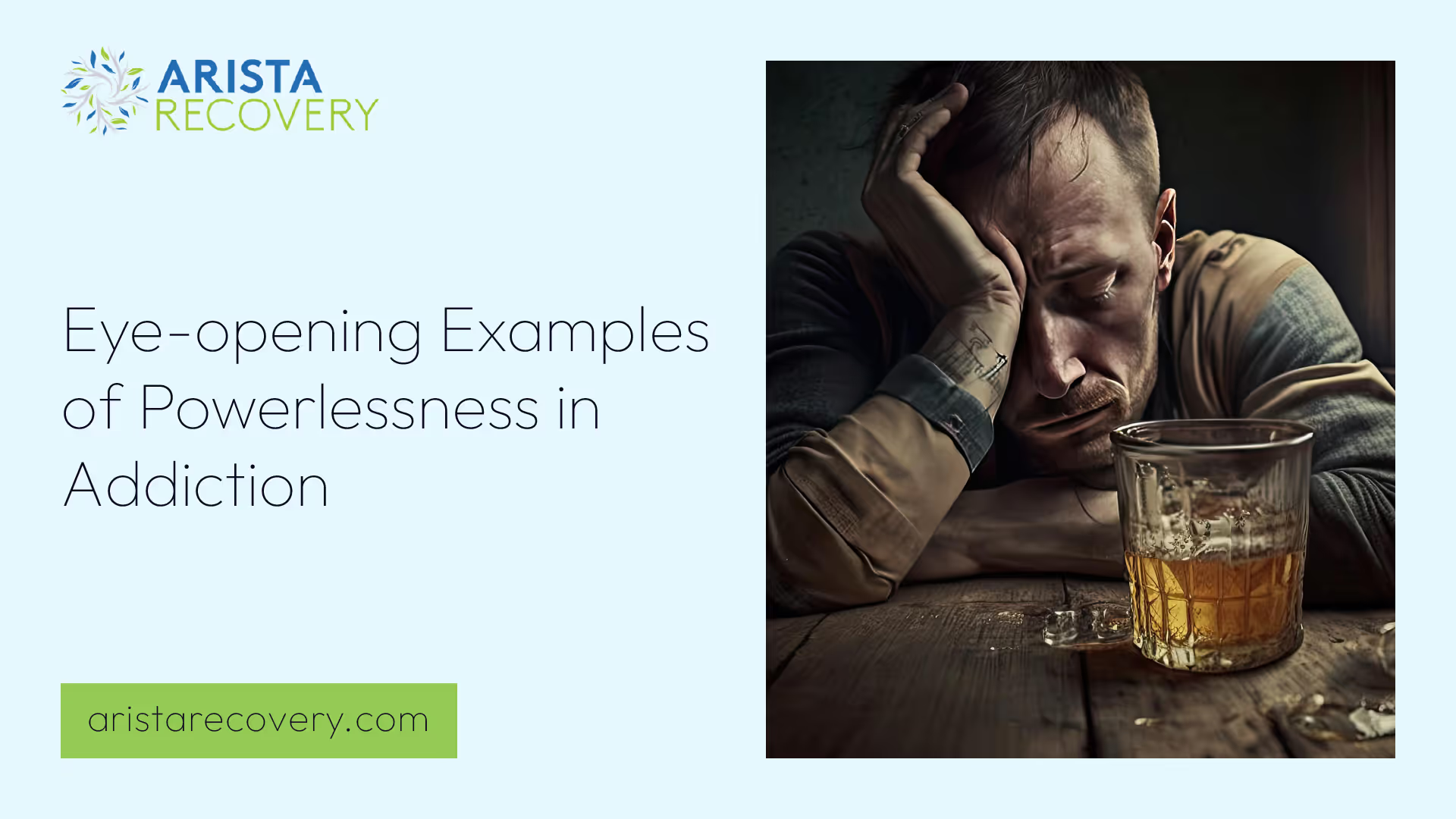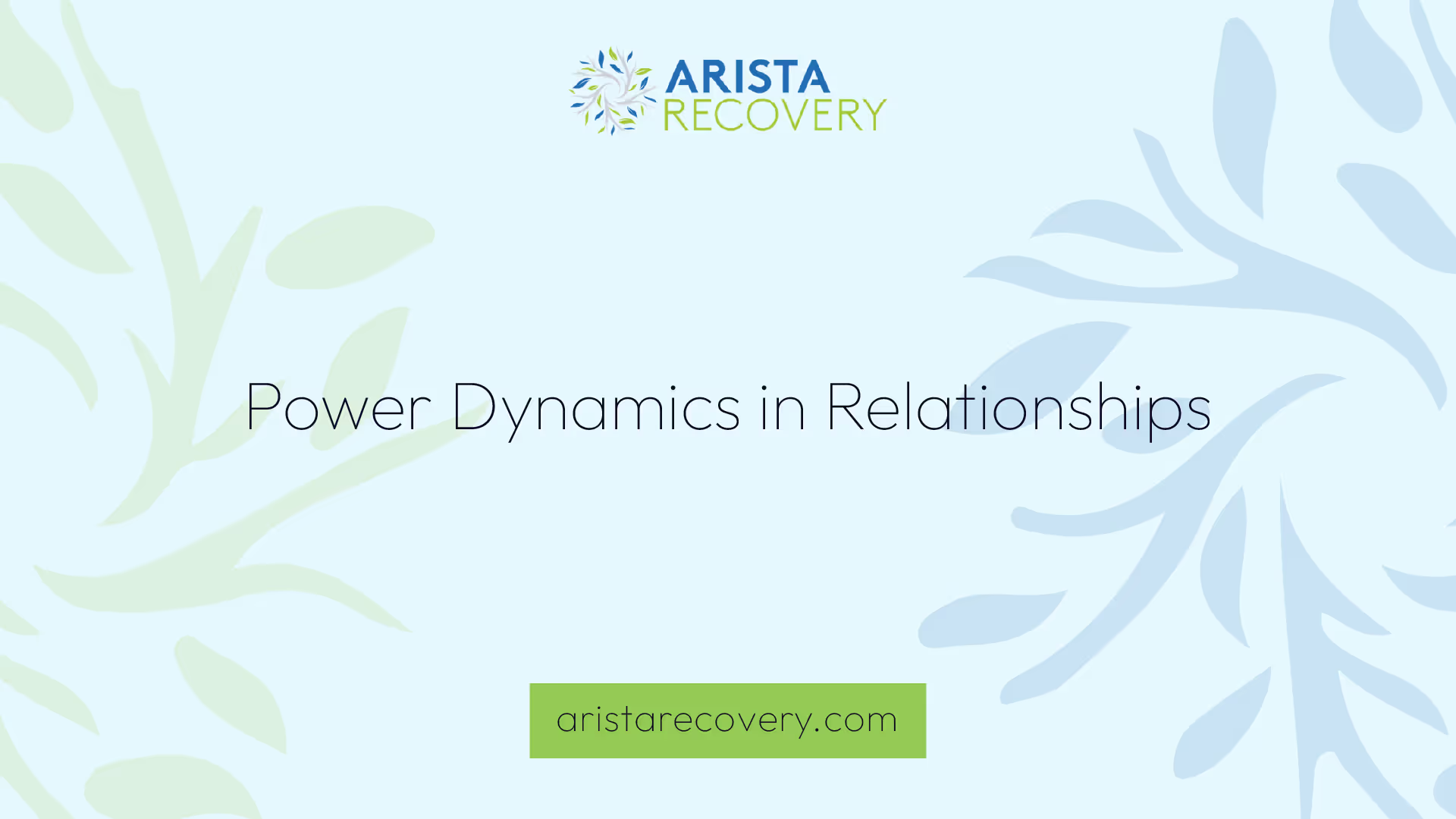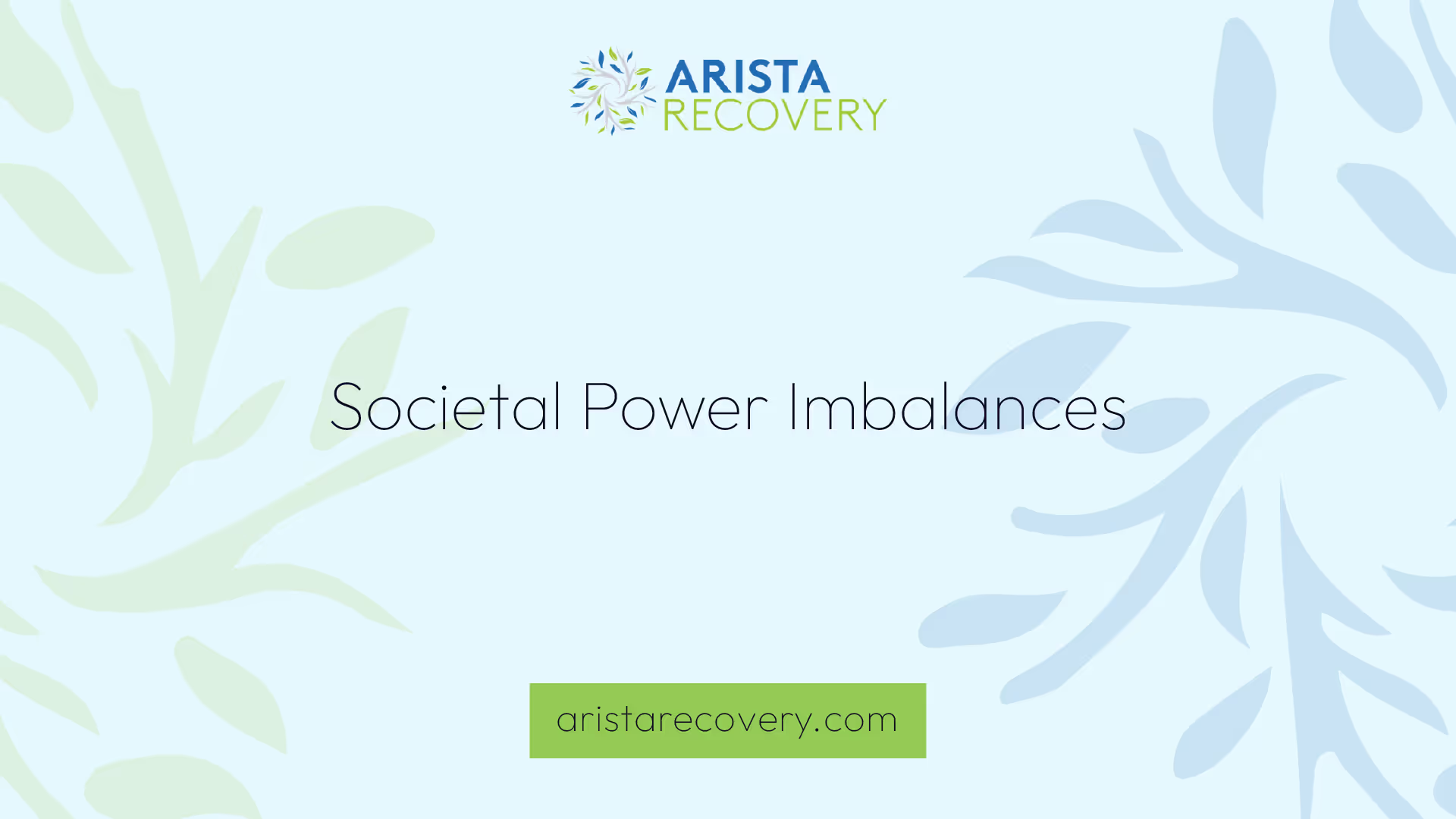Eye-opening Examples of Powerlessness in Addiction


Understanding Powerlessness in Addiction
Powerlessness is a central theme in the experience of addiction. It reflects the struggle individuals face when dealing with substance dependence and the overwhelming influence that drugs or alcohol can exert over their lives.
Effects of Powerlessness
Acknowledging powerlessness over addictive substances reveals the control these drugs have over individuals. Addiction can lead to significant changes in brain function, creating a hierarchy where satisfying cravings becomes more important than anything else, regardless of the consequences [1]. This can result in various negative effects, including:
Effects of PowerlessnessDescriptionLoss of ControlIndividuals may feel they cannot stop using substances, despite negative consequences.Unstable RelationshipsPowerlessness can strain relationships, as addiction often leads to conflict and distrust.Physical Health DeclineContinued substance use can result in numerous health issues, diminishing overall well-being.Mental Health IssuesFeelings of helplessness can exacerbate conditions like anxiety and depression.
Emotional Consequences
The emotional ramifications of feeling powerless in addiction are profound. When individuals acknowledge their lack of control, they often experience a range of feelings, including shame, guilt, and fear. This emotional turmoil can hinder their ability to seek help and support. Recognizing powerlessness can, paradoxically, be a source of strength, as it encourages acceptance of one’s circumstances rather than denial. The following emotional consequences are commonly observed:
Emotional ConsequencesDescriptionShame and GuiltMany individuals feel ashamed of their addiction, leading to isolation.Fear of JudgmentConcerns about how others perceive their addiction can prevent them from seeking help.HopelessnessA sense of despair may arise from the belief that recovery is unattainable.Desire for ChangeAcknowledging powerlessness can foster a strong desire to pursue recovery and a better future.
Recognizing and understanding the effects and emotional consequences of powerlessness in addiction is a critical step in the journey toward recovery. It not only highlights the need for support but also serves as an essential foundation for healing and personal growth.

Power Dynamics in Relationships
Understanding power dynamics is essential in evaluating how addiction affects relationships. Power imbalances can significantly influence communication and create challenges in partnerships.
Impact on Communication
In relationships affected by addiction, communication patterns often shift due to underlying power dynamics. These dynamics can determine how individuals express their feelings, needs, and concerns. When one partner feels powerless, they may withdraw or resort to avoidance, which can lead to misunderstandings and resentment. Research indicates that power dynamics shape behaviors and interactions, often resulting in unhealthy communication styles.
Communication StyleDescriptionAvoidantOne partner may refuse to discuss issues or express emotions, leading to feelings of isolation.AggressiveOne partner may dominate conversations, dismissing the other's feelings, which can escalate conflicts.OpenHealthy communication involves sharing feelings and concerns, fostering trust and connection.
The fear and shame associated with power imbalances in relationships can stem from insecurities and unresolved traumas, complicating open dialogue. Addressing these dynamics requires vulnerability and trust from both partners.
Challenges in Partnerships
Powerlessness can create significant challenges in partnerships, particularly when addiction is involved. Partners may feel unheard, undervalued, or invisible, resulting in a lack of engagement and emotional disconnect. These feelings can lead to behaviors that exacerbate the power imbalance, making it difficult to maintain a healthy relationship.
Recognizing and addressing these power dynamics is crucial. By acknowledging power imbalances, individuals can work towards fostering equitable relationships. This process involves tackling issues such as avoidance and aggression, which can arise from fear and shame.
ChallengeDescriptionEmotional DisconnectPartners may struggle to connect emotionally, as feelings of powerlessness inhibit open communication.ResentmentUnresolved issues can lead to lingering resentment, complicating efforts to rebuild trust.DependencyOne partner may become overly reliant on the other, exacerbating feelings of powerlessness and imbalance.
Through awareness and dialogue, partners can empower themselves to navigate these challenges, ultimately working towards a more balanced and fulfilling relationship.

Societal Power Imbalances
Understanding societal power imbalances is crucial in recognizing how they influence inequities and contribute to systemic injustices. These dynamics affect individuals struggling with addiction, often exacerbating their feelings of powerlessness.
Influence on Inequities
Power dynamics in society can lead to significant disparities among various individuals and groups. Marginalized communities often experience systemic inequities due to discrimination based on factors such as race, gender, and socioeconomic status. These disparities manifest in various ways, including limited access to healthcare, education, and employment opportunities.
FactorImpact on Access to ResourcesRaceHigher rates of discrimination lead to fewer opportunities for treatment and recovery support.GenderWomen may face additional barriers in accessing addiction services, including stigma and lack of availability.Socioeconomic StatusLower-income individuals often have limited access to quality healthcare and support systems.
Such inequities can create obstacles for those dealing with addiction, leading to feelings of powerlessness, which may drive individuals toward unhealthy coping mechanisms like substance abuse [3].
Systemic Injustices
Systemic factors contribute to the marginalization of certain groups, creating environments where they feel powerless. Discrimination and unfair treatment within institutions can exacerbate the struggles faced by individuals with addiction disorders. These systemic injustices are often reflected in workplaces and social structures, where power imbalances are prevalent.
For example, in the workplace, powerlessness can manifest when employees feel undervalued or oppressed. Instances of forced overtime targeting specific individuals or intentional embarrassment can lead to a toxic environment that fosters substance abuse as a coping mechanism.
The long-term effects of substance use can render individuals powerless against their addiction, as the impact of drugs and alcohol disrupts natural brain functions and mechanisms. Recognizing addiction as a health issue rather than a simple lack of willpower can empower individuals to seek the medical treatment and communal support they need [1].
In summary, societal power imbalances significantly influence the experiences of individuals with addiction, underscoring the need for awareness, advocacy, and systemic change to address these injustices.
Acknowledging Powerlessness
Acknowledging powerlessness is a significant step in the journey toward recovery from addiction. This recognition is not a sign of defeat but rather a crucial aspect of healing and personal growth.
Step in Alcoholics Anonymous (AA)
The first step in Alcoholics Anonymous (AA) emphasizes admitting powerlessness over alcohol and other substances. This step is foundational for individuals seeking recovery from addiction. It encourages individuals to confront the reality of their situation and seek help rather than deny the existence of their problem. This acknowledgment serves as a form of strength, allowing individuals to focus on their recovery journey [1].
Admitting powerlessness helps individuals understand that addiction is not merely a character flaw but a disease that alters brain chemistry. This understanding is essential for recognizing that self-control alone cannot reverse the effects of drugs or alcohol on the brain. The process emphasizes the need for treatment and support beyond willpower.
Benefits of Acceptance
Acceptance of powerlessness can be liberating for many individuals. By admitting their lack of control over substances, they can redirect their time and energy toward aspects of their lives that they can influence. This acceptance highlights the significant impact that drugs and alcohol have on their lives and sets the stage for seeking help [1].
The benefits of acknowledging powerlessness include:
Benefits of AcceptanceDescriptionSelf-AwarenessEncourages individuals to understand the damaging effects of substance abuse.Freedom from DenialAllows individuals to accept their circumstances rather than deny them.Desire for ChangeFosters a desire for a better future and motivates individuals to seek help.Enhanced SupportOpens the door for individuals to access treatment and support systems.Realistic OutlookHelps individuals accept that they cannot manage their addiction alone.
By recognizing their powerlessness, individuals can take the first step toward healing and reclaiming control over their lives. This acceptance fosters a sense of empowerment and paves the way for a positive recovery journey.
Manifestations of Powerlessness
Powerlessness in addiction can manifest in various areas of an individual's life. This section explores its impact on health and its influence in workplaces, illustrating the broader consequences of feeling powerless.
Impact on Health
Individuals struggling with addiction often experience a profound sense of powerlessness. This lack of control can lead to a range of physical and mental health issues. The following table outlines some health impacts associated with addiction and powerlessness:
Health ImpactDescriptionIncreased StressChronic stress from addiction can lead to anxiety, depression, and physical ailments.Poor NutritionSubstance abuse often results in neglecting proper nutrition, leading to weight loss or obesity.Weakened Immune SystemContinuous substance use can compromise the immune system, making individuals more susceptible to illnesses.Higher Risk of DiseaseLong-term addiction can lead to diseases such as liver cirrhosis, lung cancer, and cardiovascular issues.
Powerlessness can perpetuate the cycle of addiction, making it difficult for individuals to seek help. Recognizing addiction as a disease rather than a personal failure can shift this perspective and empower individuals to regain control over their health [3].
Influence in Workplaces
Powerlessness can also significantly affect an individual's experience in the workplace. Employees dealing with addiction may feel unheard, undervalued, and invisible, which can lead to disengagement and fear. The following table highlights examples of power dynamics that contribute to feelings of powerlessness in work settings:
Example of Power DynamicsDescriptionForced OvertimeSpecific employees may be targeted for excessive work hours, leading to burnout and resentment.Intentional EmbarrassmentEmployees may be publicly humiliated, creating a toxic atmosphere.Non-Adherence to PoliciesManagement may ignore organizational policies, undermining employee trust and agency.Withholding InformationImportant information may be kept from employees, leaving them feeling uninformed and powerless.
These workplace dynamics contribute to a negative culture of bullying and toxicity [3]. For individuals struggling with addiction, this environment can exacerbate feelings of powerlessness, further hindering their recovery journey. Addressing these issues is crucial for fostering healthier workplaces and supporting those in recovery.
Overcoming Powerlessness
Overcoming feelings of powerlessness is an essential part of the recovery process for individuals grappling with addiction. This journey involves seeking appropriate treatment and empowering oneself to navigate the challenges of recovery.
Seeking Treatment
Admitting powerlessness is a fundamental step in recovery programs such as Alcoholics Anonymous (AA). This acknowledgment serves as a form of strength, enabling individuals to confront their addiction rather than deny its existence. Recognizing the grip that substances have on their lives highlights the need for professional help [1].
Many treatment options are available, including inpatient rehabilitation, outpatient programs, and therapy sessions. Each treatment method aims to address the underlying issues of addiction and equip individuals with the tools needed for long-term recovery.
Treatment TypeDescriptionBenefitsInpatient RehabilitationA live-in program providing 24/7 care and support.Intensive support, structured environment.Outpatient ProgramsFlexible treatment allowing individuals to maintain daily activities while attending sessions.Accessibility, continued engagement with personal responsibilities.Therapy SessionsIndividual or group therapy focusing on behavioral change and coping strategies.Personal focus, peer support.
This approach fosters self-awareness and encourages individuals to realize the damaging effects of substance abuse. It guides them toward a desire for a healthier future, free from addiction's chains.
Empowering Recovery Journey
Empowerment in the recovery journey involves understanding that addiction is a disease, not a character flaw. This perspective emphasizes that addiction alters brain chemistry, diminishing self-control and making it difficult to resist cravings.
Recognizing addiction as a health issue enables individuals to seek medical treatment and support from their communities. This acknowledgment of powerlessness does not signify defeat but instead acts as a catalyst for taking meaningful steps toward recovery.
Support groups, therapy, and educational resources can play a significant role in empowering individuals. They help build resilience and encourage active participation in one's recovery process. Through these avenues, those in recovery can develop coping strategies, foster connections with others, and regain control over their lives.
Ultimately, empowering oneself in the journey of recovery requires commitment and the courage to seek help. By embracing the process, individuals can transform their lives and break free from the cycle of addiction.
References
[2]:
[3]:
You’re not alone in this.
When mental health challenges and addiction intersect, it can feel isolating. At Arista, we offer compassionate, evidence-based, and trauma-informed care to help you heal, grow, and move forward.
You’re not alone in this.
When mental health challenges and addiction intersect, it can feel isolating. At Arista, we offer compassionate, evidence-based, and trauma-informed care to help you heal, grow, and move forward.
Support that moves with you.
You’ve taken a brave first step. At Arista Recovery, we’re here to help you continue with best-in-class care designed for long-term healing and support.
.webp)






